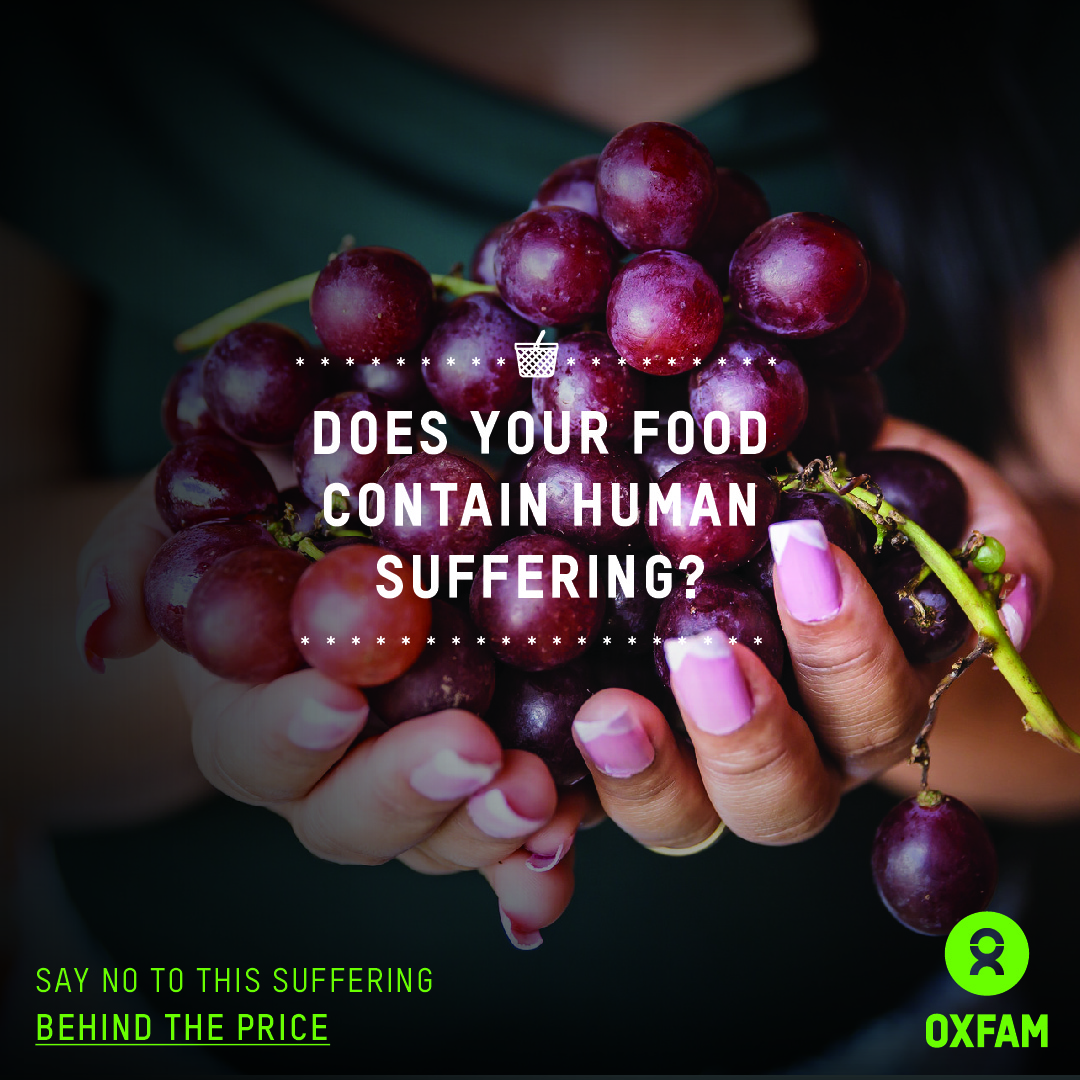Adam Smith, the father of modern capitalism, famously wrote in 1776 – it is not from the benevolence of the butcher, the brewer, or the baker, that we expect our dinner, but from their regard to their own interests. People, he argued in the Wealth of Nations, need to pursue their self-interest and this will in turn benefit our collective societal well-being. Workers’ self-interest lies in working to earn income, while business owners make profits that benefit them but also create economic prosperity and progress in society as a whole.
In the age of globalization, that balance is now fundamentally off. Over the past decades, global supermarket chains have produced hefty returns to their shareholders and owners at the expense of workers and farmers, especially women, who work hard for poverty pay and under abusive working conditions. Oxfam’s Ripe for Change report presented evidence that, across a basket of common food products, supermarkets’ share of the consumer price has increased by around 10% over the past 20 years, while the share received by farmers and workers has declined by about 25%.
Since June 2018, Oxfam has been highlighting what is wrong with the supermarket business model in our Behind the Barcodes campaign. We published extensive analyses and evidence from multiple countries across a number of commodities to show how human suffering is systemic in our food supply chains. We have gathered evidence that leading supermarkets in Germany, the Netherlands, the US and UK have links to labor rights violations and human suffering in their global food sourcing.
The supermarket model is broken and we need to fix it. The globalization of food supply chains has yielded human misery, rather than allowing women and men to flourish and reach their full potential. So why is the model broken, and how can we take action to fix it now?
First, supermarkets’ sourcing model is driven only by price competition, and largely neglects transparency and respect for human rights. Supermarkets continue to pressure suppliers on pricing while adding many layers of audit requirements. While auditing brings an element of independent verification of controls and systems, it often misses critical human right issues experienced by workers and farmers in global supply chains.
In Oxfam’s experience, we have found that those who are in charge of supply chain operations are often detached from those who formulate policies on human rights and labor standards. By separating human rights from purchasing, supermarkets do not reward suppliers for improving labor standards and perpetuate harmful and often dangerous conditions for workers.
Secondly, supermarkets have not taken enough steps to work with their suppliers to ensure ethical production. Over the past year, only two Dutch supermarkets (Albert Heijn and Jumbo) have made progressive commitments to respect workers’ rights in their supply chains. Other major supermarkets continue to be silent despite continuing evidence of labor exploitation in our food supply chains.
It is possible to fix this – the first step to improvement is more sunlight. Supermarkets must improve their overall supply chain transparency so that they, as buyers, and their customers know where their products come from.
Supermarkets must also adopt a human rights due diligence framework. This means going beyond audit compliance to proactively map out human rights risks in their supply chains and then show how these risks are being mitigated. Supermarkets should engage key stakeholders—particularly workers themselves—throughout this process. Oxfam has developed a full set of Workers’ Rights Recommendations for food retailers so that supermarkets can take steps to address these issues in their global supply chains.
More than 230,000 shoppers have demanded that the supermarkets they buy from change their practices to end human suffering in our food. Despite this call to action, Oxfam has continued to uncover new evidence of abuses and systemic challenges faced by workers producing our food all over the world—including seafood from Thailand, melons, grapes and mangos from Brazil, English Breakfast tea from India, and sweet potatoes from the United States.
Many advocates of capitalism often refer to Adam Smith’s notion of self-interest – but they completely neglect the fact that Smith was also a moral philosopher. Smith made it clear in The Theory of Moral Sentiments that we must consider the harmful effects of our actions. Pursuing self-interest should not cause harm to other people. We cannot have true prosperity without human empathy. And this is why we must end human suffering in supermarkets’ supply chains.
Download the full Oxfam briefing reports here.
Art Prapha is Oxfam America’s Private Sector Advisor.




